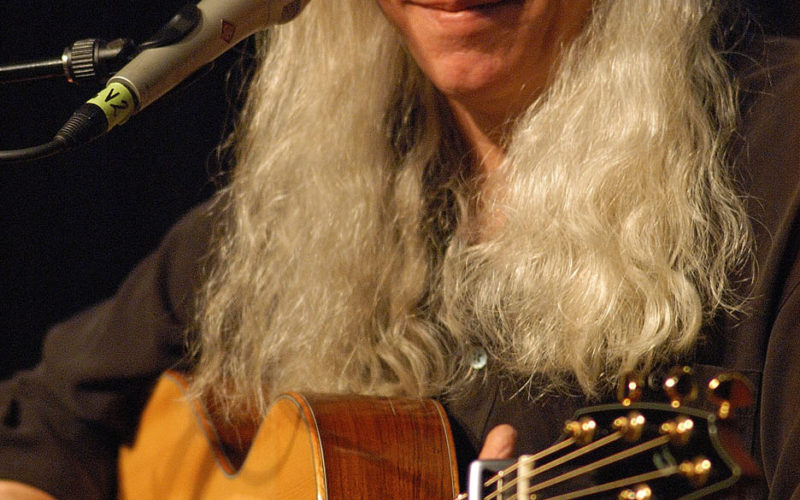Sara Parnell is always ready to open her Artist Retreat Center to a musician passing through Northwest Arkansas.
There’s a serendipitous parallel there with Ed Gerhard, a Grammy winning guitarist performing at the ARC April 20. He opens his home to … well, homeless guitars. And he recorded with them on his 2001 album, “House of Guitars.”
“What makes this recording so spectacular is that it takes David Grisman’s ‘Tone Poems’ concept — using rare, vintage mandolins and guitars to create a soundscape — and applies it in reverse,” wrote Jay Votel in The Washington Times. “Mr. Gerhard takes old starter guitars, the ones we politely call cheesy and on which most guitarists begin learning, and delivers some powerfully emotional music. This, from guitars that easily could have been bolted on the wall of your favorite chain theme saloon. One of the guitars is made of plastic, for crying out loud, and the sound is amazing. Mr. Gerhard says in his liner notes that he didn’t even change the strings.”
Gerhard did change his tune, however, very early in his musical career. Having cut his teeth on classical guitar, he gave up both the genre and formal lessons when he heard the music of bluesman Mississippi John Hurt. By the time he was 15, Gerhard was beginning to perform in “local church basement coffeehouses, playing solo and jamming with friends.”
“At the time I disliked what I perceived as a sort of formality about [classical music],” he says. “Blues seemed more natural, more inclusive. I feel like in some kind of way I’ve subconsciously tried to fuse the different styles.”
Gerhard moved to New Hampshire in 1977 — a seemingly strange choice for a musician.
“I’m reminded of a line of Dylan’s: ‘I can’t even remember what it was I came here to get away from,’” he says. “I was 20, and it was time to push myself out of the nest. I had some musician friends there, and there was an abundance of gigs. I couldn’t have found a better situation.”
The thriving folk scene let Gerhard experiment with what one critic called “a staggering array of alternative guitar tunings,” and he began to gain a national name, cemented with his debut album, “Night Birds,” in 1987. It won a spot on the Boston Globe Critics Poll Top 10 Albums of the Year and earned Gerhard an invitation to play on Windham Hill Records’ “Guitar Sampler Volume 1.” “The Handing Down” from that album “made me a lot of friends around the world,” he says.
Since then, Gerhard has played nearly everywhere and with nearly everyone, from Arlo Guthrie to Bill Morrissey and for the Ken Burns films “Mark Twain” and “The National Parks: America’s Best Idea.” He won a Grammy for his work on “Henry Mancini: Pink Guitar.”
“I prefer playing solo, but I do enjoy sitting in with others from time to time. The experience of playing to an audience informs you about what music is FOR. I love playing to people.”
“I’m excited to have him at the ARC because he is a phenomenal guitar player,” says Parnell, “and my audience has come to expect the best. The ARC is beginning to get a reputation on the ‘traveling music circuit’.”
BECCA MARTIN-BROWN
bmartin@nwadg.com



